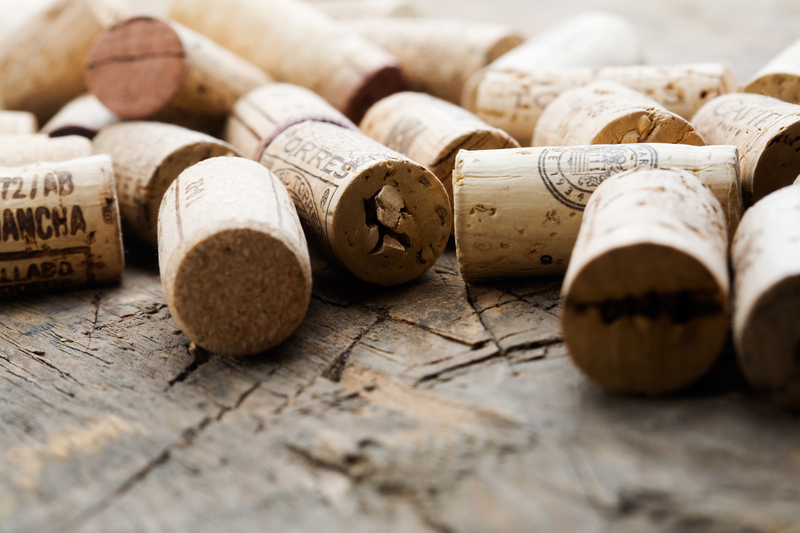Zero-Waste Options for Recycling Old Pots and Pans
Are you decluttering your kitchen and wondering what to do with old, worn-out cookware? Don't just toss your battered pans and pots into the trash. There are zero-waste options for recycling old pots and pans that are eco-friendly, creative, and even community-focused! Discover how you can dispose of, recycle, upcycle, or donate your old cookware in meaningful ways--without it ending up in a landfill.
Why Choose Zero-Waste Solutions for Pots and Pans?
Americans throw away millions of tons of household items each year. Kitchen cookware like pots, pans, and skillets are made of valuable materials that can be reused or recycled. By exploring zero-waste recycling for cookware, you:
- Conserve resources by keeping metals and plastics in use.
- Reduce landfill waste and minimize environmental harm.
- Support local communities through donations and reuse.
- Unleash your creativity with upcycling projects.

Sorting Your Pots and Pans: What Are They Made Of?
Before choosing the proper zero-waste recycling solution, it's important to understand what your old pots and pans are made from. Cookware can consist of:
- Stainless steel
- Cast iron
- Aluminum
- Copper
- Nonstick-coated (Teflon)
- Ceramic
- Glass cookware
Best Zero-Waste Methods to Handle Old Cookware
1. Donate Usable Cookware
If your pots and pans are still in good shape, consider donating them:
- Local thrift stores and secondhand shops
- Nonprofit organizations assisting families in need
- Soup kitchens, shelters, and communal kitchens
- Freecycle and local "Buy Nothing" groups
- College students or recent movers who may need additional kitchen supplies
2. Give Your Old Pots and Pans for Scrap Metal Recycling
Most traditional cookware (excluding certain nonstick or ceramic types) is made of recyclable metal. Here's how to ensure responsible scrap recycling for old pans:
- Contact Local Scrap Yards: Ask if they accept cookware and about required preparation, like removing plastic handles.
- Separate Based on Material: Cast iron, stainless steel, and aluminum cookware can often be recycled, but should be sorted appropriately.
- Remove Non-Metal Parts: Detach lids, plastic, or wooden handles so only the metal goes into recycling.
- Find Community Metal Collection Drives: Many cities and towns host periodic scrap metal pickups to encourage recycling.
Metal recycling is one of the most eco-friendly options, as metals can be reused indefinitely without losing quality.
3. Upcycle: Creative Reuse in the Garden and Home
Turn unusable cookware into something new! Upcycling old pots and pans gives them a new life and keeps them out of the landfill. Some fun ideas include:
- Planters: Transform old pots and pans into quirky flowerpots or herb gardens.
- Birdbaths or Feeders: Large, shallow pans can be great for outdoor birds.
- Wall Art: Painted pans make unique artwork for kitchens or patios.
- Organizer Bins: Repurpose pots to hold tools, office supplies, or kids' craft materials.
- Candle Holders: Use small copper or cast-iron pans as sturdy candle displays.
Get creative! Upcycling is a fantastic sustainable practice that's both functional and decorative.
4. Manufacturer Take-Back Programs
Some cookware brands now offer take-back and recycling programs as part of their sustainability commitments. They make it easy to ensure old cookware is recycled responsibly. For example:
- TerraCycle: Partners with brands to collect hard-to-recycle cookware items.
- Recycling Initiatives from Major Brands: Some companies, like GreenPan and Calphalon, accept returns of their old products for recycling. Check their websites or contact customer service.
This is especially useful for nonstick pans that may require specialized processing.
5. Community Tool Libraries and Repair Cafes
Some communities have tool libraries (where people can borrow items instead of buying new) or repair cafes for fixing broken items. Consider donating your still-functioning or repairable cookware. These grassroots options build community and reduce unnecessary waste.
How to Recycle Pots and Pans with Nonstick or Teflon Coating
Nonstick cookware creates a special challenge because of its Teflon or other coatings. Not all recycling centers accept Teflon or nonstick-coated cookware, but you can:
- Contact Manufacturer Programs for specialized recycling (as noted above).
- Ask Scrap Yards if they accept nonstick pans (sometimes possible if coating is worn away or removed by professionals).
- Reuse or Upcycle nonstick pans as garden planters, trays, or storage organizers if recycling isn't available.
Always make safety a priority: if your old nonstick pans are badly scratched or flaking, keep them out of food service.
Can Cookware Be Placed in Curbside Recycling?
Most curbside recycling programs do not accept pots and pans, because:
- Cookware materials require specialized recycling facilities.
- Sharp or heavy items can damage recycling equipment.
- Handles, coatings, or composite materials disrupt standard sorting processes.
Always check with your local municipal recycling program for specific rules. In general, drop-off recycling centers or scrap yards are the best route for metal cookware.
FAQs About Zero-Waste Cookware Recycling
-
Can I recycle glass cookware or lids?
Most glass bakeware and lids aren't suitable for curbside recycling. However, some transfer stations or specialty centers may accept them. If not, upcycle as garden ornaments or donate. -
What if my cookware is rusted or broken?
Severely damaged items can still be recycled or upcycled, especially as scrap metal or garden planters! -
How can I tell if it's time to let cookware go?
If pans have warped bottoms, flaking coatings, or structural cracks, it's time to retire for safety. -
Is cast iron accepted at all recycling centers?
Usually, yes. Cast iron is highly valued for scrap, but always check with your local site.
Benefits of Zero-Waste Recycling for Cookware
By choosing zero-waste solutions for old pots and pans, you're making a real difference:
- Reduce greenhouse gas emissions by cutting landfill waste.
- Preserve natural resources through metal recovery and reuse.
- Support creative reuse and local organizations.
- Set a positive example for family and community.
Every item kept out of the landfill is a step toward sustainable living.
Tips for Maintaining Pots and Pans for Extended Life
Of course, the most sustainable option is to extend the life of your cookware. Try these tips before recycling:
- Reseason cast iron to prevent rust and damage.
- Replace handles or knobs instead of discarding entire pots.
- Use gentle cleansers to preserve coatings and finishes.
- Avoid rapid temperature changes that promote warping or cracking.
When you're finally ready to retire a piece, remember the many zero-waste options available!

Conclusion: Zero-Waste Cookware Disposal Is Easy and Impactful
In the age of sustainable kitchen practices, recycling or reusing old cookware is a simple but powerful act. By considering zero-waste options for recycling pots and pans, you're not just keeping harmful materials out of the landfill--you're also contributing to a circular economy. Whether you donate, recycle, upcycle, or join a manufacturer take-back program, you'll find the perfect eco-friendly solution for every pot and pan.
For optimal results, always find out your community's specific recycling protocols. Encourage others to choose zero-waste kitchen solutions. With a little effort, we can all enjoy a greener, cleaner planet--one pan at a time!
Summary Checklist: Responsible, Zero-Waste Cookware Disposal
- Assess if your cookware is still usable.
- Donate to organizations or neighbors in need.
- Recycle metal cookware at a designated scrap yard.
- Upcycle as planters, decor, or storage.
- Participate in brand or community take-back programs.
- Verify disposal guidelines for nonstick or composite materials.
Let's make every kitchen item count--choose zero-waste options for old pots and pans today!
